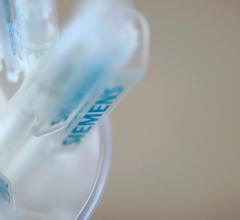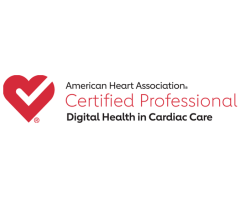
December 29, 2016 — The Department of Health and Human Services (HHS) finalized new Medicare alternative payment models Dec. 20, which includes new bundled payments for cardiac care. The measures are part of the administration’s healthcare reforms and include new approaches to shift Medicare payments from rewarding quantity to rewarding quality by creating incentives for hospitals and clinicians to work together to avoid complications, avoid preventable hospital readmissions and speed patient recovery.
Bundled payments were also created for patients who receive surgery after a hip fracture beyond hip replacement, which in addition to heart attack patients is another source of high-cost readmissions.
Three new payment models will support clinicians in providing care to patients who receive treatment for heart attacks, heart surgery to bypass blocked coronary arteries or cardiac rehabilitation. HHS said the cardiac episode payment model provides opportunities to improve care coordination and quality. The focus of these approaches is to reduce unnecessary variation in care, improve patient results and reduce preventable readmissions. In 2014, more than 200,000 Medicare beneficiaries were hospitalized for heart attack treatment or underwent bypass surgery, costing Medicare over $6 billion. But the cost of treating patients for bypass surgery, hospitalization, and recovery varied by 50 percent across hospitals, and the share of heart attack patients readmitted to the hospital within 30 days varied by more than 50 percent. In addition, only 15 percent of heart attack patients receive cardiac rehabilitation, even though clinical studies have found that completing a rehabilitation program can lower the risk of a second heart attack or death.
“As we move from volume-based care to value-based care, this new path for cardiologists to participate in Advanced Alternative Payment models under MACRA’s Quality Payment Program is a challenging step,” said American College of Cardiology (ACC) President Richard Chazal, M.D., FACC. “It is our sincere hope that the end result will be opportunities for coordinated care and improvement in quality, while also decreasing costs for patients with heart attack or who undergo bypass surgery.”
Read the article “Preparing Hospitals for Mandatory Medicare Cardiac Bundled Payments.”
Read the article "Methodology and Approach to Preparing for Mandatory Cardiac Bundled Payments.”
Under the new approaches, the hospital in which a Medicare patient is admitted for care for a heart attack, bypass surgery, or a hip or femur procedure will be accountable for the quality and cost of care provided to Medicare fee-for-service beneficiaries during the inpatient stay and for 90 days after discharge. The new models will operate over a period of five years beginning July 1, 2017. The cardiac models will apply to hospitals located in the 98 metro areas participating in the model (about one-quarter of all metro areas in the nation). The surgical hip fracture treatment model will apply to hospitals in 67 metro areas, which are the same metro areas currently included in the Comprehensive Care for Joint Replacement Model.
The cardiac rehabilitation incentive payment model will test the impact of providing payment to hospitals to incentivize referral and coordination of cardiac rehabilitation following discharge from the hospital for a heart attack or bypass surgery. These payments will cover the same five-year period as the cardiac care bundled payment models and will be available to hospital participants in 45 geographic areas that were not selected for the cardiac care bundled payment models, and 45 geographic areas that were selected for the cardiac care bundled payment models.
Under all of these approaches, beneficiaries retain their freedom to choose services and their hospital or physician. The Centers for Medicare and Medicaid Services (CMS) will monitor and evaluate the impact of the approaches on care quality and value. An ombudsman will also be monitoring the models and be available for beneficiaries. More information about the structure of these models is available in an FDA fact sheet on the changes.
"As a practicing doctor, I know the importance of hospitals, doctors, nurses and others working together to support a patient from heart attack or surgery all the way through recovery. These bundled payment models support coordinated care and can reward clinicians through the Quality Payment Program,” said Patrick Conway, M.D., CMS acting principal deputy administrator.
Other Changes in Medicare Payments
Bundled payments were also announced for orthopedic care, providing care to patients who receive surgery after a hip fracture beyond hip replacement. In addition, HHS is finalizing updates to the Comprehensive Care for Joint Replacement Model, which began in April 2016. Another measure provides an accountable care organization (ACO) opportunity for smaller practices.
In order to encourage more practices, especially small practices, to advance to performance-based risk, the new Medicare ACO Track 1+ Model will have more limited downside risk than in Tracks 2 or 3 of the Medicare Shared Savings Program. The model also allows hospitals, including small rural hospitals, to participate in this new ACO model. Stakeholders, including physician groups, have requested this type of ACO model be added to the portfolio of options. This approach will provide opportunities for an estimated 70,000 clinicians to qualify for Advanced Alternative Payment Model (APM) incentive payments in 2018.
“The new ACO Track 1+ was developed based on heavy stakeholder input and will enable many more physician practices to progress to an advanced model that receives incentive payments,” Conway said. “The model allows doctors and other clinicians to practice the way they want to — working with patients to redesign care and provide the best outcomes possible.”
Continual Feedback and Support for Participating Clinicians
CMS plans to offer education and training to support and prepare clinicians in these models. These activities will include webinars about each model as well as qualification criteria for the Quality Payment Program incentive payments, fact sheets explaining what model participants will need to do to be successful in the models, and open door forums where CMS staff will be able to answer questions about the models.
The final rule can be viewed at: https://downloads.cms.gov/files/cmmi/epm-finalrule.pdf
Read the article “Preparing Hospitals for Mandatory Medicare Cardiac Bundled Payments.”
Read the article "Methodology and Approach to Preparing for Mandatory Cardiac Bundled Payments.”


 February 20, 2026
February 20, 2026 









